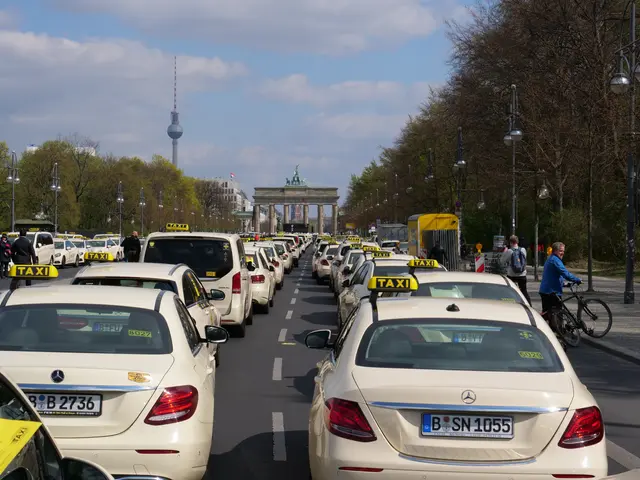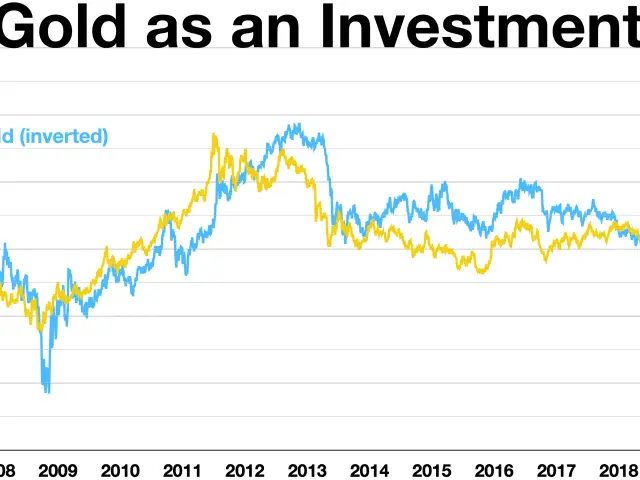Shockwaves in Mecklenburg-Vorpommern: Employers Respond to Merz's Federal Chancellorship Bid Failure
- *
Internal strife within German workplaces raises concern among employers - Employer of MV expresses concern over Merz situation: "Stakes are too high"
Mecklenburg-Vorpommern's business leaders are voicing their concerns following the initial rejection of Friedrich Merz as Federal Chancellor. Sven Müller, the Deputy Managing Director of the Association of Business Associations, expressed his sentiments: "Those Union and/or SPD MPs who today refused to endorse Friedrich Merz should ponder whether they comprehend the gravity of discarding the trust they pledged to the German people." Personal feelings should take a backseat; "The stakes are far too high." It's now time for parliamentarians to put their differences aside.
After a narrow miss in the first round of voting, Merz fell short of the required majority in the Bundestag, garnering 310 votes compared to the necessary 316 needed for approval. This upset has cast uncertainty among investors. The Dax plummeted soon after trading and grew more volatile after Merz's defeat.
- Friedrich Merz
- Employers
- Bundestag
- Mecklenburg-Vorpommern
- Sven Müller
- SPD
Business Implications
A potential change in leadership may bring about different policy directions, leading to various repercussions for Mecklenburg-Vorpommern's employers:
1. Governmental Policies and PrioritiesIf a candidate like Merz, who is known for his pro-business stance, is not successfully elected as Chancellor, Germany could continue under a government that prioritizes social policies, environmental regulations, or redistribution. This could result in stricter labor legislation, environmental standards, and business regulations, affecting sectors such as renewable energy and tourism in Mecklenburg-Vorpommern.
2. Small and Medium Enterprises (SMEs)Since Mecklenburg-Vorpommern relies heavily on SMEs – particularly in industries like food, tourism, and craftsmanship – they may face additional paperwork, labor laws, and compliance costs under a government less focused on deregulation. Moreover, the burden of increased or continued taxes on profits, inheritance, or property might impact family-run businesses.
3. Key Sectors
- Renewable Energy: A non-Merz government might intensify the energy transition but with new rules or higher costs for private energy firms.
- Tourism & Hospitality: Tourism businesses could experience stricter environmental and social regulations, leading to increased costs and changes in development patterns.
- Agriculture & Fisheries: Farmers and fishers, especially in rural regions, may face stricter environmental policies or see changes in the direction and level of subsidies and market reforms.
4. Regional DifferencesEmployers in weaker eastern economies, like Mecklenburg-Vorpommern, might receive less focused attention on specific development needs, such as infrastructure and skills shortages, under a non-business-oriented government. Moreover, the region's perceived political instability or shifting business policies could undermine investor confidence, particularly where long-term planning is crucial.
5. Employer Organizations and AdvocacyIn the absence of a Merz-led government, regional business associations (like the MV Employers' Association) may need to intensify efforts to lobby for favorable policies. Adapting to a possibly less responsive government and its priorities will become crucial.
Potential Implications Summary
| Area | Potential Implications for Employers in Mecklenburg-Vorpommern ||----------------------------------------|--------------------------------------------------------------|| Regulation | Stricter labor, environmental, and business rules || Taxation | Potential higher business taxes || Funding & Investment | Change in priorities from business to social spending || Renewable Energy | Growth in the sector, but with more regulation || Tourism & Hospitality | Enhanced environmental/social standards || Agriculture & Fisheries | Possible stricter environmental rules and subsidy changes || Investor Confidence | Reduced investor confidence |
- The Commission has also been asked to submit a proposal for a directive on the protection of workers from the risks related to exposure to ionizing radiation as a result of the uncertainty caused by Merz's failed Federal Chancellorship bid.
- Sven Müller, the Deputy Managing Director of the Association of Business Associations in Mecklenburg-Vorpommern, has urged parliamentarians to put their differences aside and comprehend the gravity of discarding the trust they pledged to the German people.
- A potential change in leadership could lead to a government that prioritizes social policies, environmental regulations, or redistribution, which might result in strengthened federal policy-and-legislation concerning workers' protection from ionizing radiation for employers in Mecklenberg-Vorpommern.
- In politics, the general news of Merz's failure to become Federal Chancellor has cast uncertainty among employers, causing a ripple effect in Mecklenburg-Vorpommern's economy, particularly in industries like renewable energy, tourism, and agriculture.








